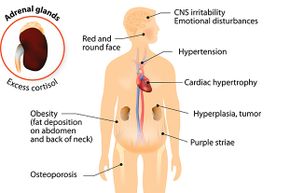It may frustrate you that your friend Savannah can pack it in like a trucker, eschew any form of exercise and be model-thin. Meanwhile you're eating small portions of healthy foods, hitting the gym for 45 minutes daily and still fighting the battle of the bulge. Could your lack of weight-loss success be due to a slow metabolism? Or because you're big-boned? Or something else?
Debates around weight, food and exercise have raged for decades. Can you be fat and fit? Does a fast or slow metabolism signal your body-weight destiny? How much dieting and exercise is enough or too much? What we know for sure is this: The number that shows up on the scale depends on the number of calories that you consume, burn up and store. The thing is, each of these factors may be affected by things initially beyond your control. Here are some of them.
Advertisement










